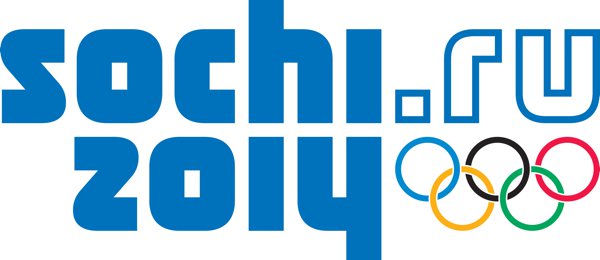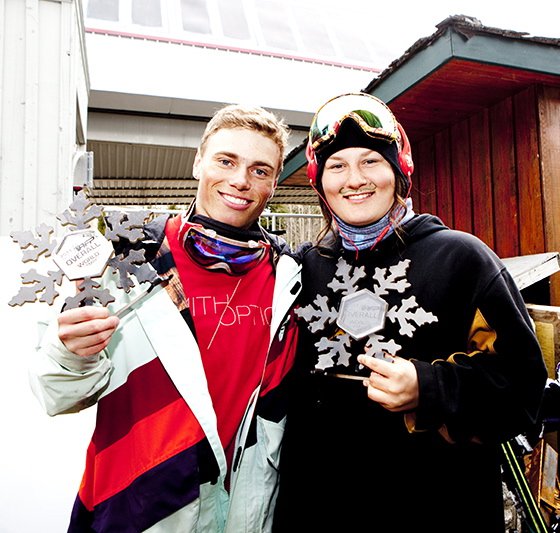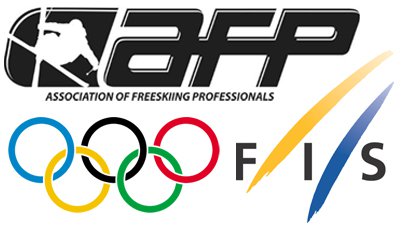Words by Chris Jerard & Michael Spencer
With halfpipe and slopestyle skiing being granted admission to the Olympics this past spring, many people have asked, what will happen to the sport?
History has proven that many times sports that have their own identity pre-Olympic status have lost their soul to the Olympics and have been over run by their International Federation.

Four years ago, the AFP was formed to do a variety of things. Obtaining entrance into the Olympic Games was part of the AFP mission. But now, one of our jobs, in addition to helping to keep the sports organized, is to keep the progression of the sport moving forward the way it always has and not let any other entity take the identity the athletes have worked so hard to create.
This past October, after AFP Vice President/Co-Founder Michael Spencer had a private meeting with Joe Fitzgerald, the Director of Freestyle of FIS, the AFP was invited to attend the FIS meetings in Zurich and give their input and suggestions of how the core of the sport wants to be represented. Three of the AFP Founders (Chris Schuster, Josh Loubek and Michael Spencer) flew to Zurich, Switzerland to participate in several of the Freestyle Committee's meetings to provide our input and get a better understand of what to expect and what we might be able to influence in a positive way.

What happened next was unexpected – but undeniably great for our sport. Here are the highlights of the meeting...
The Calendar
Any new events such as the World Cups used to qualify for the Olympics will coordinate around the existing AFP Calendar so athletes will not need to choose what events to go to, but rather be able to make their own schedule and not miss the big events such as Dew Tour and X Games. It was even discussed that events such as the Grand Prix’s in the US and the New Zealand Open could become World Cups that would ultimately not add any new events or competitions to the athletes' schedules. Right now there appears to be only the potential for seven World Cups in total during the Olympic Qualification process as well, which begins in July 2012 and runs through January 2014.
Halfpipe Standards
FIS will ensure that in order for an event to be considered a World Cup, the event organizers will guarantee a 22-foot halfpipe.
Slopestyle
It was agreed that there should not be standards on slopestyle courses. However, there should be rules in place for the athletes' benefit that state if there is any major change to the course after practice, then all competitors shall be given extra training before competition. This provides a safe competition format. There is also a group in place that is starting the design of the Olympic course. Right now there is no word on them getting any info from athletes. The AFP will track down the right people and provide the athletes with the ability to voice their opinion.
Judging
The greatest victory for the sport was here. FIS has commissioned the AFP to handle all judging materials and clinics to certify FIS judges. The AFP has already created a very detailed presentation to use. It is our intention to have a version of this available on the AFP website for athletes and coaches to look at and have the right tools to perfect their runs and also provide feedback should there be any inconsistency of what the athletes want to see. FIS has also agreed to change to a 100-point system, so all events, whether AFP sanctioned or FIS sanctioned, will have the same point system and consistency with judges.

2011 AFP World Champions Gus Kenworthy & Devin Logan. Photo by Dan Brown
Again, this has been a very promising and re-assuring meeting that took place that helps the athletes continue to progress and direct the future of the sport. For more information on The Association of Freeskiing Professionals, go to afpworldtour.com.


Comments